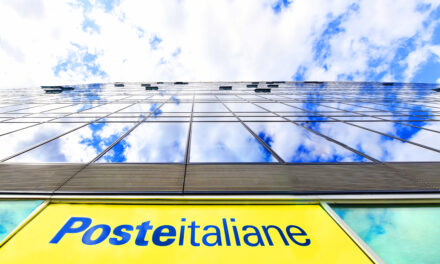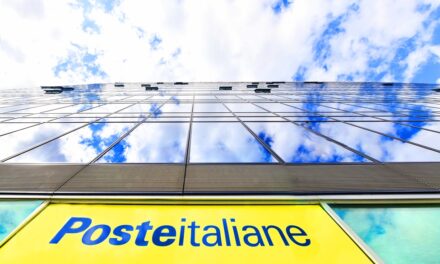
Italy's post office
Now might not be a great time to launch a financial services stock, but Italy's national postal service — led by its booming banking unit — is gearing up for a float.
When that happens depends on the government, but the company — emboldened by a foray into financial services that turned it around from a loss-making bureaucracy — is already rivalling more obviously sophisticated institutions for capital.
Having rewritten its history as a lethargic administration that could barely be trusted to deliver a letter in time, the post office was valued this year by investment banks at as much as 15 billion euros, said Sarmi. He declined to say which banks had provided the estimate.
That would make it Italy's third-largest retail bank by market value at current share prices and is 50 percent higher than the estimated value Sarmi cited for the postal group more than a year ago.
And while billions have been wiped off banks' market value globally by their loans to 'subprime' borrowers, analysts say the post office — which in a float would offer shares to both domestic and foreign investors — is a banking story that has succeeded by betting on the simple and safe.
Key to Poste Italiane's business model has been a strategy of using its 14,000 outlets across Italy to offer bank accounts and loans, exploiting its reputation as a conservative player that has catered to pensioners and families for decades.
In 2006, about 67 percent of Poste Italiane's revenue came from ventures outside mail.
"It's not an exciting business but it's profitable," said Vetulli.
A FINGER IN MANY PIES
Poste Italiane has joined a broader trend of postal groups diversifying out of the low-margin mail business into more lucrative segments, as the rise of the Internet and email challenge the concept of traditional mail.
With banking also using electronic networks, postal groups have found it relatively easy to branch out — capitalising on numerous outlets that give them a market position other retail operators can only dream of, and an image of reliability.
Germany's Deutsche Post and France's La Poste have similarly expanded into banking: the former listed its banking unit, which is also now the country's biggest retail bank.
In Italy, even the biggest licensed retail bank, Intesa Sanpaolo — at 5,500 branches — has well below half of those at Poste Italiane's disposal. So hard it is to compete with Poste's reach and brand, Moody's Vetulli sees only a limited threat to its core postal business from deregulation in the European postal market — due to be largely complete by 2011.
The European market for letters weighing up to 50 grams is currently still shielded from competition, while other mail is already liberalised.
MAIL TO MOBILE
After five decades of ending each year in the red, Italy's post office — whose branches today greet customers with a "Postamat" automated teller machine at the entrance — is on track for its sixth straight profitable year, said Sarmi.
Sarmi said he wants to branch out further, and last November announced Poste would become a "virtual" mobile phone operator as well. Poste has bought access on Vodafone's telecoms network so it can offer mobile phone services to its clients, following similar efforts by others including French retailer Carrefour.
Poste is also seeking its own banking licence so it can lend money and offer financial products directly to clients rather than remarketing loans offered by other banks. Sarmi said that if it is granted the licence, Poste's banking revenues would immediately jump by 20 percent.
Naturally, this is making Italy's banks, who have so far been largely unaffected by the subprime crisis, uncomfortable. Italy's banking association ABI filed a complaint with the European Commission two years ago accusing Poste of unfair competition. It says if Poste Italiane wants to offer banking services it should conform to standard banking requirements — like setting aside money against risk — and be supervised by the Bank of Italy as well as market and antitrust regulators.
Sarmi is not so concerned by that.
"We're already the No. 1 retail bank in Italy in terms of current accounts," he said. "Since we have attracted this huge number of clients, we are confident we can continue. We are growing."












